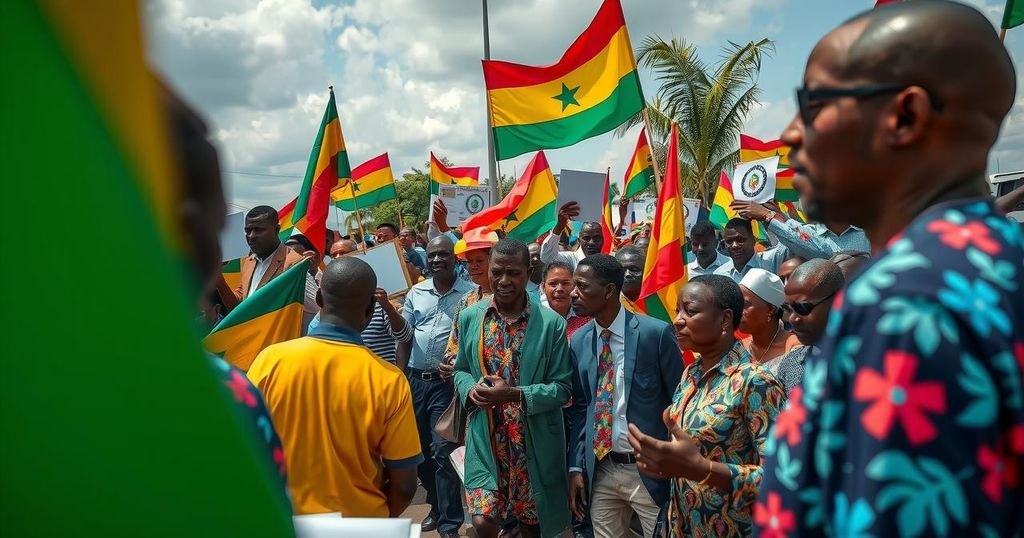Senegal Concludes Tense Campaign Ahead of Key Legislative Election
Senegal’s crucial legislative election will occur on Sunday, following a tense campaign period marked by political violence. President Bassirou Diomaye Faye’s party lacks a parliamentary majority needed to implement promised reforms, while opposition leader Ousmane Sonko decried attacks on his supporters. The election outcomes are pivotal for Senegal’s democratic stability amidst rising challenges.
On the eve of a critical legislative election, Senegal’s political climate is charged with tension as parties conclude their electoral campaigns. Scheduled for Sunday, this election will see voters elect 165 lawmakers to the assembly, where President Bassirou Diomaye Faye’s party currently lacks a majority. Faye, elected in March under an anti-establishment promise, has indicated that his inability to implement proposed reforms—such as combating corruption and enhancing local resource benefits—is due to this lack of control. In September, he took decisive action by dissolving the opposition-led parliament, prompting the need for a snap election. The atmosphere during this campaign has been volatile, characterized by sporadic clashes among party supporters. Recent weeks have witnessed violence, with incidents occurring in central Senegal and an opposition party headquarters in Dakar set ablaze, as reported by the Ministry of the Interior. Notably, Ousmane Sonko, the prominent opposition leader and the Prime Minister, condemned the violence against his supporters while calling for restraint in a subsequent address. Despite his earlier emotional response suggesting retaliation, he later encouraged peace among his followers. This legislative election follows a presidential vote in March which challenged Senegal’s status as a stable democracy in a region prone to upheaval. Both Faye and Sonko were released from imprisonment shortly before the presidential ballot due to a political amnesty initiated by former President Macky Sall, whose tenure had been shadowed by allegations of aiming for a third term in violation of established limits. Protests against their arrests had resulted in significant casualties and widespread detentions, marking a tumultuous period leading up to this weekend’s critical election.
Senegal is recognized for its relatively stable democratic governance compared to other West African nations, recently shaken by coups. The current political landscape has been tumultuous, especially following the controversial arrest of key political figures, including President Bassirou Diomaye Faye and opposition leader Ousmane Sonko. The political dynamics shifted dramatically when Faye, campaigning on an anti-establishment platform, was elected in March amidst rising concerns over governance and political violence. This legislative election is pivotal in determining the future course of reforms promised by the president, especially regarding national resource management and anti-corruption initiatives.
In summary, Senegal’s impending legislative election stands as a crucial test for President Bassirou Diomaye Faye’s administration and its reform agenda. The tense campaigning period has revealed deep divisions within the political landscape, with violence erupting among party factions. The outcome may not only influence domestic policies but also reaffirm Senegal’s position as a beacon of democracy in a region struggling with instability.
Original Source: apnews.com




Post Comment